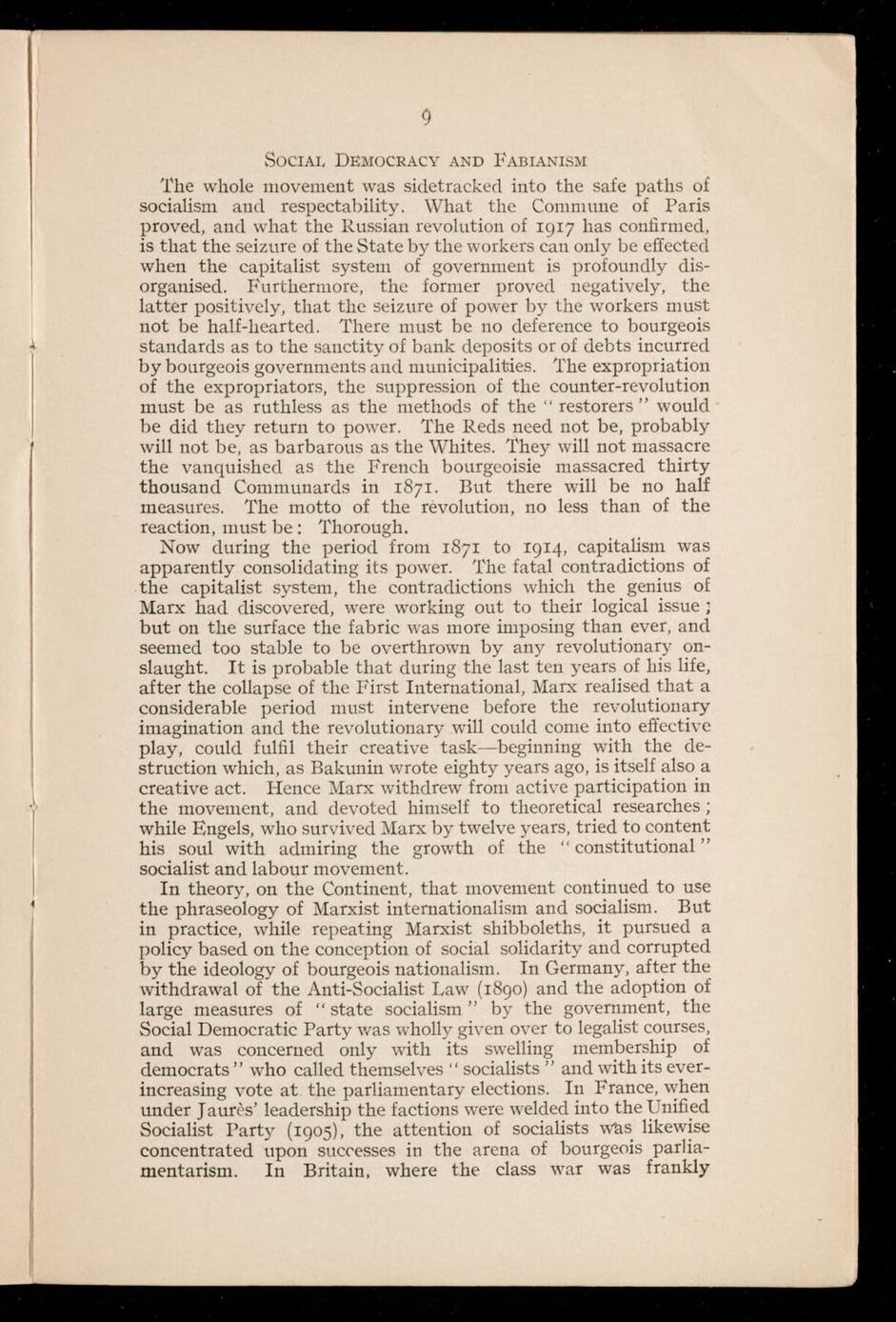9
Social Democracy and Fabianism
The whole movement was sidetracked into the safe paths of socialism and respectability. What the Commune of Paris proved, and what the Russian revolution of 1917 has confirmed, is that the seizure of the State by the workers can only be effected when the capitalist system of government is profoundly disorganised. Furthermore, the former proved negatively, the latter positively, that the seizure of power by the workers must not be half-hearted. There must be no deference to bourgeois standards as to the sanctity of bank deposits or of debts incurred by bourgeois governments and municipalities. The expropriation of the expropriators, the suppression of the counter-revolution must be as ruthless as the methods of the "restorers" would be did they return to power. The Reds need not be, probably will not be, as barbarous as the Whites. They will not massacre the vanquished as the French bourgeoisie massacred thirty thousand Communards in 1871. But there will be no half measures. The motto of the revolution, no less than of the reaction, must be: Thorough.
Now during the period from 1871 to 1914, capitalism was apparently consolidating its power. The fatal contradictions of the capitalist system, the contradictions which the genius of Marx had discovered, were working out to their logical issue; but on the surface the fabric was more imposing than ever, and seemed too stable to be overthrown by any revolutionary onslaught. It is probable that during the last ten years of his life, after the collapse of the First International, Marx realised that a considerable period must intervene before the revolutionary imagination and the revolutionary will could come into effective play, could fulfil their creative task—beginning with the destruction which, as Bakunin wrote eighty years ago, is itself also a creative act. Hence Marx withdrew from active participation in the movement, and devoted himself to theoretical researches; while Engels, who survived Marx by twelve years, tried to content his soul with admiring the growth of the "constitutional" socialist and labour movement.
In theory, on the Continent, that movement continued to use the phraseology of Marxist internationalism and socialism. But in practice, while repeating Marxist shibboleths, it pursued a policy based on the conception of social solidarity and corrupted by the ideology of bourgeois nationalism. In Germany, after the withdrawal of the Anti-Socialist Law (1890) and the adoption of large measures of "state socialism" by the government, the Social Democratic Party was wholly given over to legalist courses, and was concerned only with its swelling membership of democrats" who called themselves "socialists" and with its ever-increasing vote at the parliamentary elections. In France, when under Jaurès' leadership the factions were welded into the Unified Socialist Party (1905), the attention of socialists Was likewise concentrated upon successes in the arena of bourgeois parliamentarism. In Britain, where the class war was frankly
